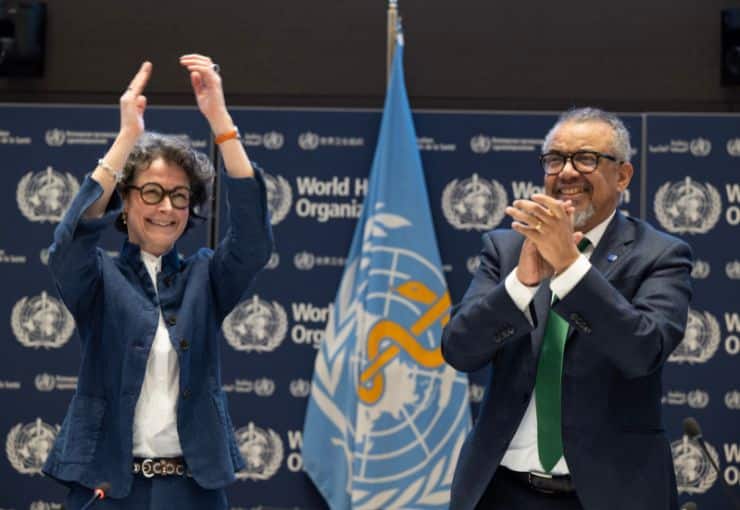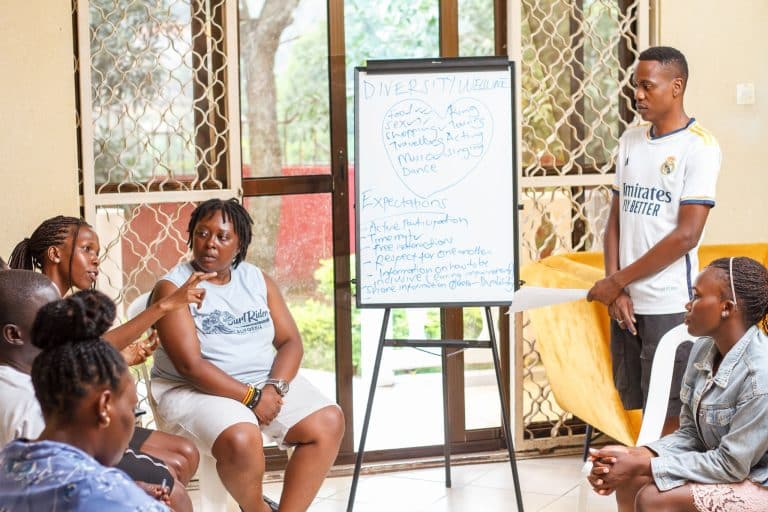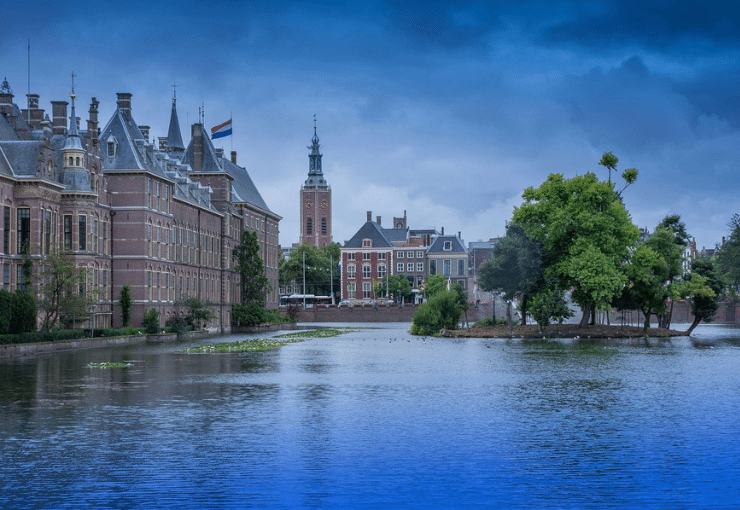“A collective stranglehold”. This is how the debate moderator Martijn de Greve described the current pharmaceutical system during last night’s debate ‘Pharma’s Other Futures’ in the Rode Hoed. “Although everyone can find faults within the current system, everyone also somehow benefits from the system,” said Carla Hollak (Professor in Metabolic Diseases) just before that. And that is exactly why implementing good alternatives is so difficult. Despite the complex issues discussed, there was ample room for an open conversation and many ideas about how we can improve the system and realize an alternative one.
With around 120 people in the audience, it was clear that the public interest in problems related to the pharmaceutical system is alive and well. Wemos’ global health advocate Ella Weggen gave an introductory talk with Sophie Bloemen (Commons Network) about the EU Manifest – a call towards future Members of EU Parliament to put people’s health first in EU medicines policy. According to Ella, this is also why now is the right moment to discuss this pressing issue.
Crash course in Big Pharma for (the dumbest of the) dummies
Journalist Lucien Hordijk (The Correspondent) then took the stage and gave the audience an eye-opening crash course in the ins and outs of ‘Big Pharma (for dummies)’. After that, Robin Kok told her compelling story about living with cystic fibrosis, and how medicines have truly improved her life. She reminded everyone that, while things really need to change, we all have a collective responsibility. Carla Hollak (Professor in Metabolic Diseases, UMC Amsterdam), who lately garnered media attention because of her magistral drug preparations for her patients, views these individualized drug formulas as a viable alternative. ‘But only if it’s done on a small scale – otherwise it’s not a solution for the current system,’ she said, also stressing that we do need the pharmaceutical industry for innovation. According to Rob Henning (Professor in Pharmacology, Groningen University), we need a model in which innovations that are funded with public money, for example at universities, are ‘pooled’ in a so-called patent pool. From there, further development can take place.
A dead-end system
The evening then proceeded with two panel discussions about what and how exactly the system needs to change. Politicians Pia Dijkstra (D66) and Paul Tang (Labour Party) call for a European approach: ‘Every economic guideline book starts with the same mantra: you are supposed to regularize monopolies. And somehow national governments and the EU have failed to do so.’ Annemiek Verkammen (director HollandBIO) agreed that there should be more transparency. ‘It’s an expensive dead-end system, and the market authorization process takes a long time.’ More transparency, a patent pool and starting the authorization process in an earlier stage is how we could start improving the system, she said.
For more details and quotes of the panelists, read our full summary of the evening (in Dutch).




